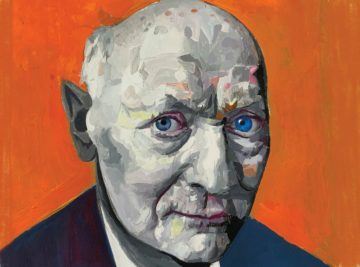Adam Kirsch at The Nation:
 By the 1950s, when Isaac Bashevis Singer’s Yiddish fiction was beginning to win acclaim in English translation, the future of the Yiddish language looked bleak. Its homeland in Eastern Europe had been destroyed in the Holocaust, and the largest remaining Jewish populations were now being raised to speak different languages: English in the United States, Russian in the Soviet Union, and Hebrew in Israel. The readers Singer had addressed for decades in The Forward, New York’s leading Yiddish daily paper, represented a significant share of the world’s surviving Yiddish speakers. Few of them were younger than him, and their numbers were shrinking.
By the 1950s, when Isaac Bashevis Singer’s Yiddish fiction was beginning to win acclaim in English translation, the future of the Yiddish language looked bleak. Its homeland in Eastern Europe had been destroyed in the Holocaust, and the largest remaining Jewish populations were now being raised to speak different languages: English in the United States, Russian in the Soviet Union, and Hebrew in Israel. The readers Singer had addressed for decades in The Forward, New York’s leading Yiddish daily paper, represented a significant share of the world’s surviving Yiddish speakers. Few of them were younger than him, and their numbers were shrinking.
Singer and his Yiddish readers shared the uncanny experience of being the last bearers of a disappearing culture. For Jewish and non-Jewish readers who encountered him in translation, however, those common religious, political, and personal reference points were obscured. To that larger public, Singer appeared not as a participant in a broader Yiddish culture but as a synecdoche for Yiddish as such, perhaps even a medium with the power to resurrect it.
more here.
